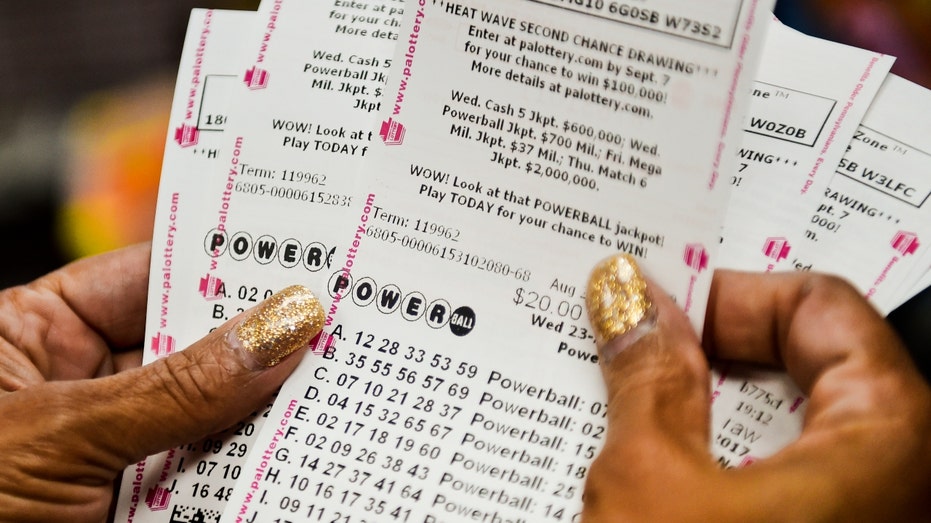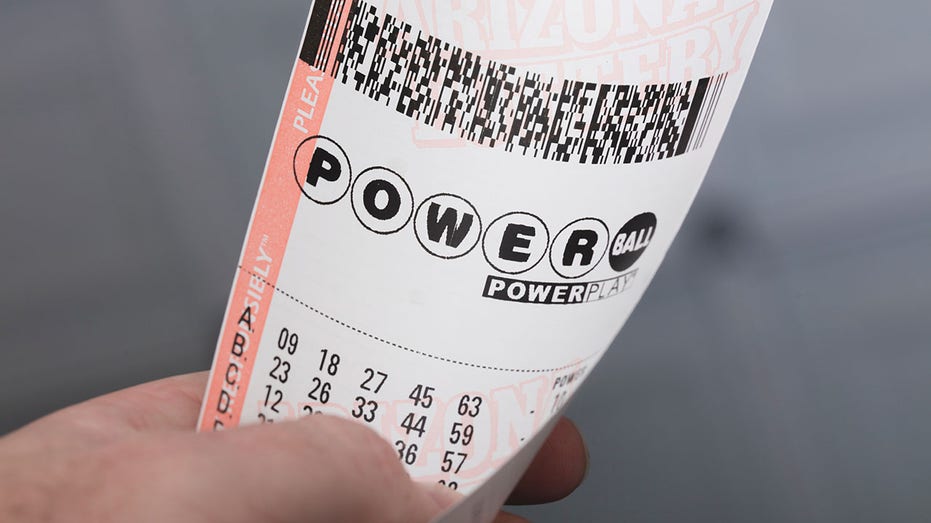Powerball jackpot climbs to $1B. Here's the tax bite if you win
Lottery winners could see huge tax hit on Powerball winnings
For the second time ever in Powerball's 30-year history, the jackpot for the Monday night drawing is a staggering $1 billion.
It is the fifth-largest lottery jackpot in U.S. history, falling shy of the record $1.586 billion payout scored by three Powerball ticket holders in 2016.
Powerball said the Monday jackpot climbed to an estimated $1 billion from $825 million after no ticket matched all six numbers drawn on Saturday.
However, any winners could see markedly less money than is advertised.
POWERBALL JACKPOT HITS $1 BILLION FOR MONDAY'S DRAWING

Doris Natal of Reading checks out her 126 Powerball tickets as part of a pool with the Berks County Sheriff's Office at the Sunoco in Exeter. (Photo By Natalie Kolb/MediaNews Group/Reading Eagle via Getty Images) ((Photo By Natalie Kolb/MediaNews Group/Reading Eagle via Getty Images) / Getty Images)
Most jackpot winners choose the up-front, lump-sum payment. In this case, that's about $497 million before taxes. Lottery winners are required to pay a 24% federal withholding tax on their winnings, which would be about $120 million in this case.
On top of that, lottery winnings are taxed as regular income: The current top tax rate will be applied to income over $578,125 for individuals and $693,750 for married couples filing jointly next year. That means winners would have to pay an additional 13% on their winnings, which would whittle down the total number to about $314 million.
You may also owe state taxes on the money, depending on where you live. The tax rates for lottery winnings typically range from about 3% to 11%.
There is another way to increase your take-home winnings and reduce the tax hit.

Powerball ticket in someone's hand (iStock / iStock)
HERE ARE WEDNESDAY'S WINNING NUMBERS IN THE $715.1M POWERBALL DRAWING
Instead of choosing a one-time payment, lottery winners can opt for the annuity payment plan. The annuity option is 30 annual payments that are typically stretched out over 29 years.
When you choose this route, you ultimately end up with more money because the base amount accrues interest earned over the next three decades, according to TurboTax. The money you haven't taken yet is invested for you.
Most financial experts advise winners to go with the annuity option, given the history of lottery winners winning millions only to end up bankrupt.
GET FOX BUSINESS ON THE GO BY CLICKING HERE
Still, there's no reason to worry too much about the tax hit from winning the lottery. The final payment – regardless of the massive tax hit – is also more money than most Americans see in a lifetime.
The odds of matching all six numbers drawn in a Powerball are about one in 292.2 million.





















